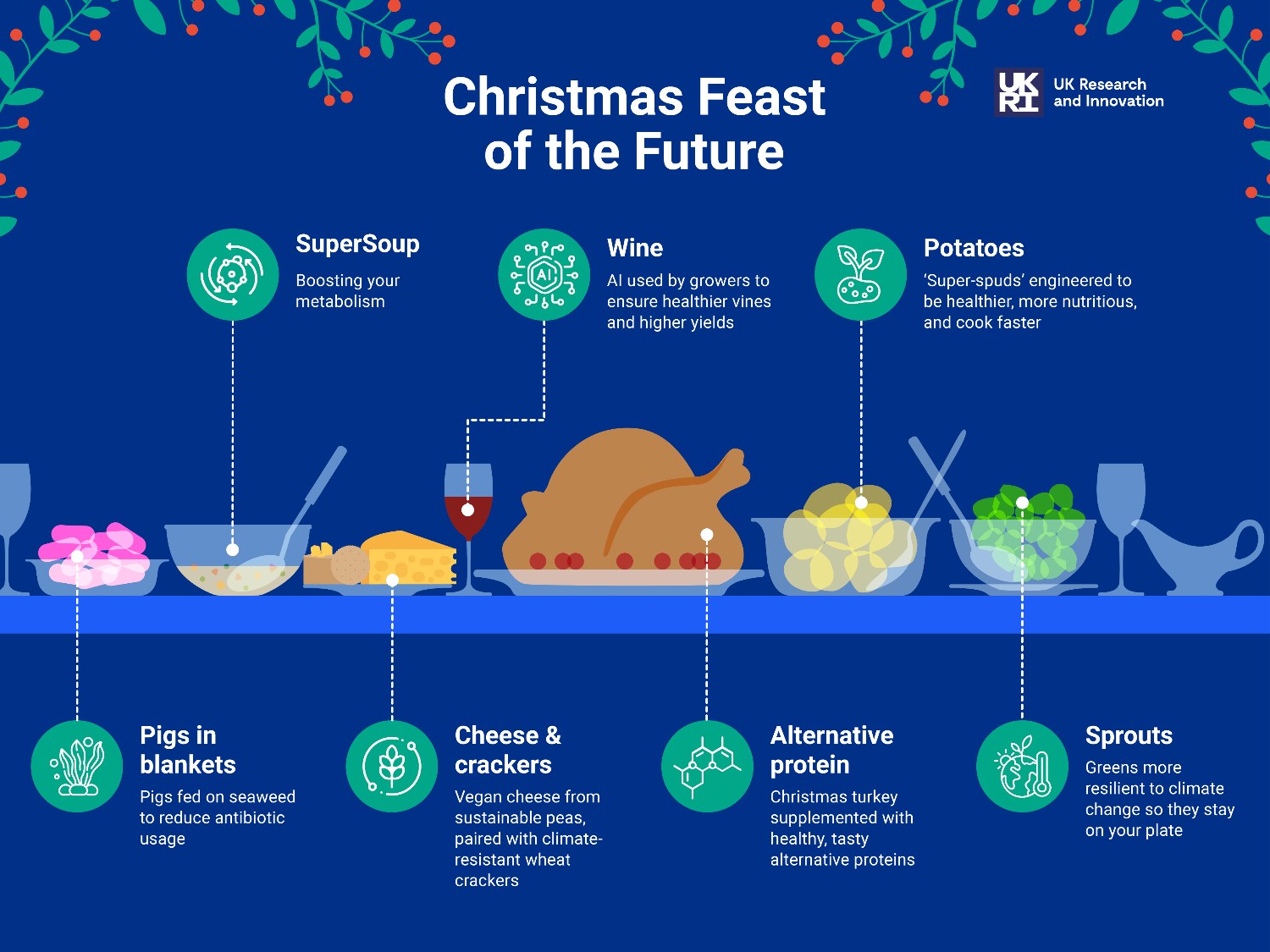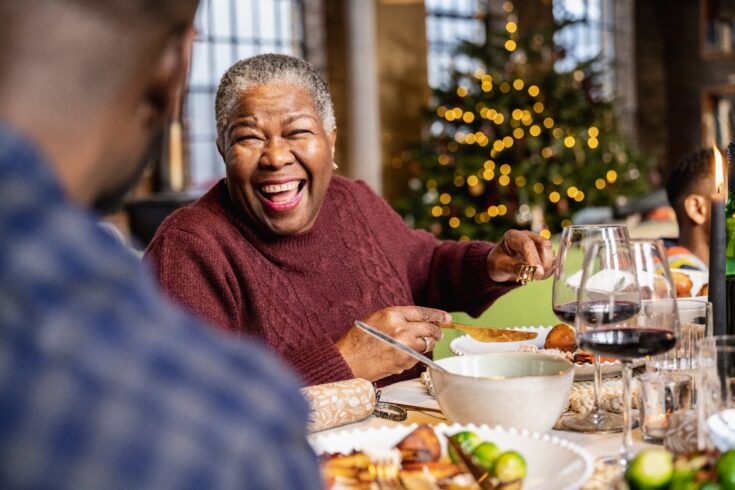An important part in many people’s festive activities is Christmas dinner on Christmas day.
UK Research and Innovation (UKRI) is supporting scientists and innovators to ensure that the food on our Christmas dinner plates, and all year round, is nutritious, tasty, affordable and healthy.
On this page are just some of the ways UKRI is helping you to enjoy your festive feast this month, backed by support from:
- the Technology Missions Fund
- the Biotechnology and Biological Sciences Research Council
- the Engineering and Physical Sciences Research Council
- Innovate UK
Sharing healthy food through research and innovation
Stella Peace, Interim Executive Chair of Innovate UK and UKRI Food Champion, said:
Food is at the heart of so many cultures, bringing people together to share traditions and create new memories, as well as delivering nourishment and health.
As friends and families come together in the coming weeks, our opportunity is to make sure that the food we share is healthy, nutritious, and sustainable through research and innovation.
Let’s be the change we want to see this Christmas.
The starters
SuperSoup
Start your festive feast with a unique ‘SuperSoup’, supercharged to support your metabolic health, helping to maintain healthy cholesterol and blood sugar levels over the festive period.
SuperSoup was launched in 2022 and developed by Smarter Naturally, a spin-out company from the Norwich-based Quadram Institute.
The company was founded by Professor Richard Mithen following over 30 years of research.
SuperSoup includes a special type of broccoli with increased levels of glucoraphanin that improves the way our cells work, helping to maintain healthy cholesterol and blood glucose levels, a key risk factor for developing diabetes.
Pigs in blankets
Researchers at Queens University Belfast’s Institute of Global Food Security are studying how animals fed with seaweed have a reduced need for antibiotics.
The main course: alternative turkey with all the trimmings
Roast turkey
The main ingredient to a Christmas dinner is of course the roast turkey, but new scientific advances are helping to find new and exciting ways to provide your Christmas protein.
A team of researchers is on a mission to develop sustainable, affordable, healthy and tasty alternative proteins that in the future we might all be enjoying as part of our Christmas dinner.
The team includes researchers from:
- National Alternative Protein Innovation Centre in Leeds
- Cellular Agriculture Manufacturing Hub in Bath
- Imperial College London-led Engineering Biology Microbial Food Hub
Roast potatoes
Another Christmas favourite is roast potatoes.
In Lincoln, B-Hive Innovations is developing the ‘super-spud’ by harnessing the power of engineering biology through its TuberGene project.
They are developing improved potato varieties that are healthier, bruise resistant, and faster cooking.
They’re also working to keep potato farming sustainable, so that there will be potatoes on the table for decades to come.
Brussels sprouts
There’s no excuse not to eat your Brussels sprouts either!
The effects of wild weather threatening the sprout supply could be combatted through research at the John Innes Centre in Norwich.
Their work is helping to reduce the vulnerability of our brassica food supply chain, including our traditional Brussels sprouts, to fluctuations in climate change.
After dinner: cheese from peas
‘Cheese from Peas’ has been developed by researchers from the University of Nottingham spin-out company The Good Pulse Company.
These innovators are using new techniques to turn yellow peas grown in the UK into a sustainable plant-based cheese.
This alternative has similar properties to dairy cheese without the need to use high levels of fat, resulting in a healthy, tasty vegan cheese to put on your crackers.
Meanwhile, wheat varieties, being developed as part of the Delivering Sustainable Wheat programme, will be more resistant to climate change to ensure we still have crackers and bread for our cheeses.
The drinks: AI saving wine
Artificial intelligence (AI) company Deep Planet is working with Sussex-based Rathfinny Wine Estate to use remote sensing and AI to help wine growers better predict the health, yields and maturity of their crops.
This should improve supplies and bring down costs.
The company is also working with wine growers around the world to help improve the health of wine grapes across several key wine-producing regions.

UKRI’s Festive Feast. Credit: UKRI, created by SeventhElement
Helping us to make informed food choices this Christmas
How we interact with food is central to delivering a healthier and more sustainable diet for all.
Bristol based Consumer Lab is one of six UKRI funded innovation hubs as part of the Diet and Health Open Innovation Research Club.
The hub aims to help support our real-world healthy food choices by studying dietary choices and behaviour.

